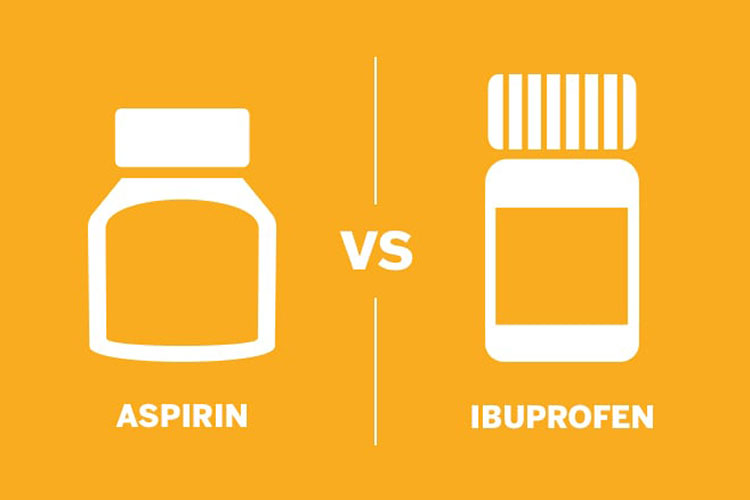Introduction: Aspirin and Ibuprofen are commonly used medications for treating dental pain. While both belong to the class of nonsteroidal anti-inflammatory drugs (NSAIDs) and have similar mechanisms of action, it is essential to understand the distinctions between them. This article aims to comprehensively compare Aspirin and Ibuprofen to help you make informed decisions about medication use. However, please note that this article is not medical advice, and consulting your doctor is essential before making any decisions about medication.

- Similarities and Mechanism of Action: Both Aspirin and Ibuprofen are NSAIDs that work by inhibiting the production of prostaglandins, which are substances responsible for pain and inflammation.
- Gastrointestinal Side Effects: It is important to note that Aspirin is more likely to cause gastrointestinal side effects compared to low-dose Ibuprofen. Therefore, if you have a history of gastrointestinal issues, such as ulcers or bleeding, Ibuprofen may be a more suitable choice.
- Pediatric Use: Aspirin is generally not recommended for children under 12 or those under 16 years with a viral illness due to the risk of Reye’s syndrome. On the other hand, Ibuprofen can typically be used for children over six months and can be administered to a child with a viral infection.
- Blood Clotting and Cardiovascular Effects: Aspirin can be used at low concentrations to reduce the risk of heart attack or stroke and to inhibit blood clotting. However, Ibuprofen has a negligible effect on blood cells or platelets, and it is not recommended for similar cardiovascular protection.
- Sensitivity to Salicylates: Aspirin is derived from salicylic acid, and some individuals may be sensitive to salicylates. Symptoms of sensitivity may include asthma-like responses, nasal congestion, and hives. If you are sensitive to salicylates, Ibuprofen might be a better choice.
- Specific Conditions and Recommendations:
- Back pain, arthritis, and menstrual cramps: Doctors often recommend Ibuprofen over Aspirin for these conditions due to the increased risk of gastrointestinal complications associated with prolonged Aspirin use.
- Headaches, minor body pains, and dental pain: Aspirin can be used occasionally, but Ibuprofen is also effective.
- For patients with a history of heart issues or stroke: NSAIDs, including high-dose Ibuprofen, may pose a higher risk in such patients. Therefore, caution should be exercised, and it is important to consult with your doctor before using NSAIDs.

Conclusion: Understanding the differences between Aspirin and Ibuprofen is crucial for making informed decisions about pain relief and inflammation management. While both medications have advantages and considerations, you must consult your doctor to determine the most suitable option for your specific condition and medical history. This article aims to provide general information and should not substitute professional medical advice. If you are a patient at St. Lawrence Dentistry, you can directly consult with Dr. Hawryluk.
Reference:
https://www.drugs.com/medical-answers/difference-between-aspirin-ibuprofen-3508521/
Disclaimer
This article is not medical advice. Please consult your doctor before making any decisions about medication.
- St. Lawrence Dentistry Looks Forward To St. Patrick’s Day! - March 12, 2025
- Understanding Dental X-Rays and Radiation: What You Should Know - January 13, 2025
- Happy New Year from St. Lawrence Dentistry! - December 30, 2024










